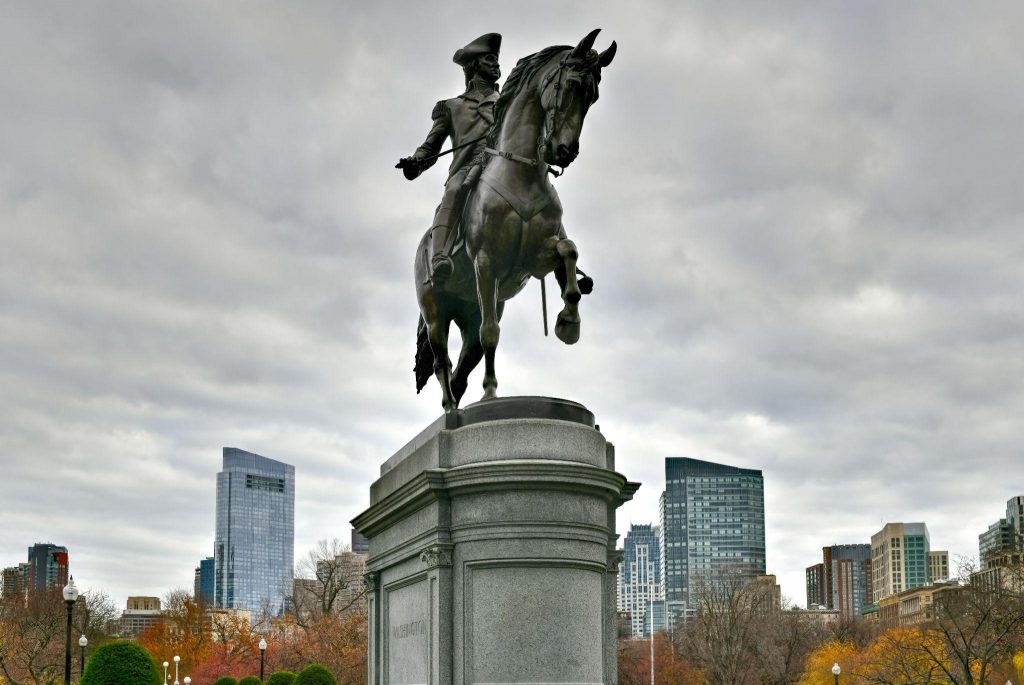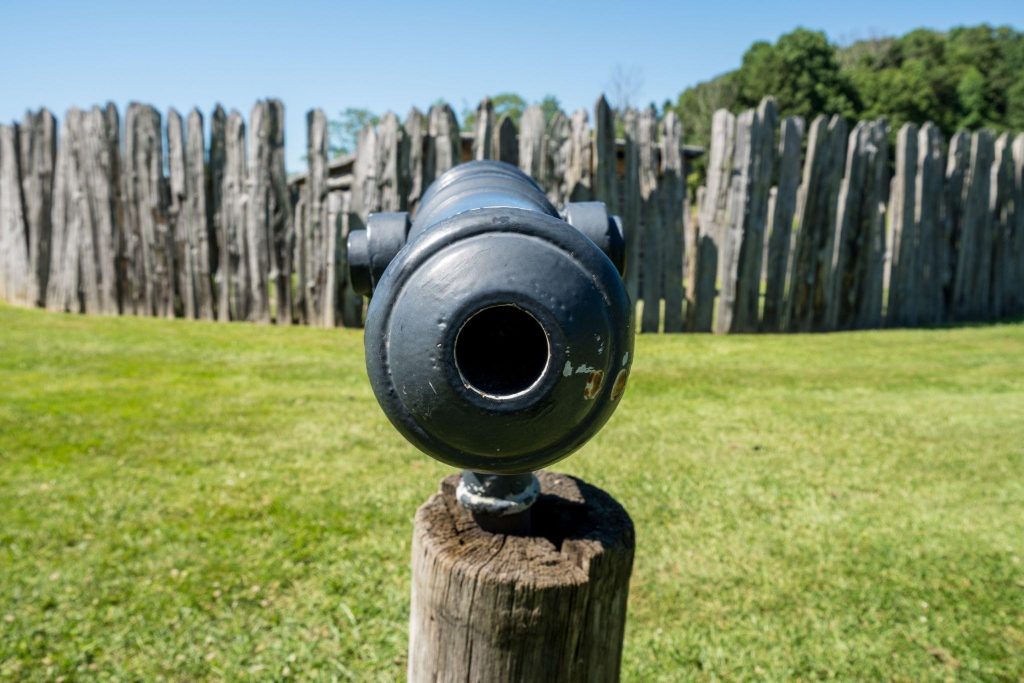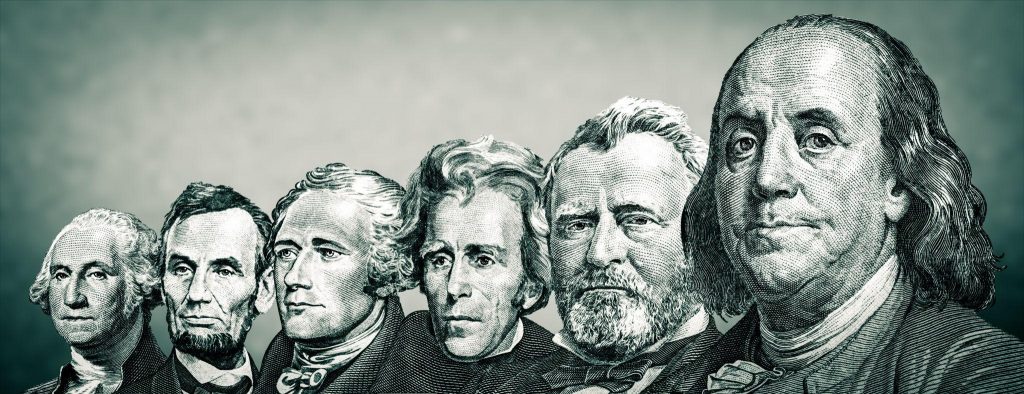THE WORLD’S #1 EXECUTIVE COACHING AND BUSINESS COACHING BLOG SINCE 2017.
Modern Leadership Meets Tradition: George Washington’s Authentic Model
December 27, 2023 | Category: Blog, Intelligent Leadership | Last updated on: March 12, 2025
George Washington’s leadership has been instrumental in turning the United States of America into the country it is today. The first President of the US assumed leadership at a pivotal moment in history. He inspired people through integrity, courage, determination, strategic prowess, and a deep understanding of the principles of intelligent leadership.
“Discipline is the soul of an army. It makes small numbers formidable, procures success to the weak, and esteem to all.” – George Washington.
George Washington’s leadership relied on resilience, a calm demeanor, and strategic prowess coupled with discipline and a long-term vision.
Washington’s discipline, calmness, and resilience inspired the troops and people he commanded. His leadership earned the US military victories in the Battle of Trenton and the Siege of Yorktown and, eventually, independence from the British Empire.
Having served as the commander-in-chief of the Continental Army in the American Revolutionary War, Washington established the American Presidency, earning the moniker “Father of His Country” and setting many invaluable precedents.

George Washington has gone down in history as “The Father of His Country.”
Washington originated the concept of the peaceful transition of power we have grown to consider an indispensable part of democracy. His decision to relinquish Presidential power after two terms has enshrined the practice as an essential safeguard against the abuse of power.
George Washington’s leadership is an outstanding historical example of effective, inspiring, and impactful leadership. It offers countless lessons to those looking to learn and build reservoirs of positive leadership references.
Those who don’t learn from history are doomed to repeat its mistakes. And those who choose to forego the lessons historical leadership offers are wasteful at best and foolish at worst.
From the perspective of a leadership coaching specialist, history is a bottomless reservoir of leadership lessons, references, and examples. And George Washington’s leadership is a particularly fertile source of such material.
Authenticity, character, and a focus on personal growth are three pillars of successful leadership we can identify in Washington’s leadership. Understanding George Washington’s background and historical context is essential to understanding his leadership and the skills behind his success.
Understanding George Washington
The first President of the United States of America and one of the Founding Fathers, George Washington, was born in 1732 in Westmoreland County, Virginia.
He was a defining figure and leader of the Revolutionary War. And his colonial military career was impressive by every measure. Unafraid to put himself in harm’s way, he had his hat and coat pierced by bullets in the Battle of Monongahela.
At the head of the Virginia Regiment, he successfully defended 300 miles of frontier against Indian attacks for almost a year. He reformed the Regiment, increasing its size and effectiveness. During this time, he developed his leadership skills and learned British military tactics.
As the Commander in Chief of the Continental Army, he undertook several successful campaigns that resulted in the Treaty of Paris, through which Britain recognized American independence.
Even after his Yorktown victory that sealed the outcome of the Revolutionary War, the country needed his leadership.
“We cannot, Sir, do without you.” – Thomas Jefferson.
In the wake of the War, with some parts of the freshly independent nation still under British occupation and economic realities beginning to bite, some of Washington’s soldiers wanted him to assume the title and position of king. He abhorred the idea, denouncing it and making his first important political decision for the United States. Many more would follow.
The writers of the Constitution created the Office of the President specifically for George Washington. One of his defining Presidential decisions was to keep the fledgling country out of the French-British War through the Proclamation of Neutrality.
He made the Constitution work by resorting to violent coercion where he deemed it necessary. By many accounts, he was an indispensable figure, the only person who could lead the United States’ struggle for independence and the new country as its first President.
With all his qualities and leadership integrity, Washington positioned himself on the wrong side of history in the question of slavery. He was a slave owner, and, by some accounts, he was demanding, always complaining about his slaves’ carelessness and deceitful nature.
George Washington was a man of action. He didn’t hesitate to act when he thought the situation required it and the timing was favorable. He led his revolutionary troops to victory against the odds, demonstrating courage and willingness to lead by example.
Some of his other key leadership qualities were:
- Vision. Washington knew what he wanted for his country and had a clear vision for the future of the United States.
- Leadership integrity. George Washington observed strict leadership principles and practiced ethical leadership.
- Humility. Washington handed over power to a civilian administration at the end of his tenure, setting an important precedent and making perhaps his most significant Presidential decision.
- Adaptability. Washington was ready to accept failures and learn from them.
Authenticity and Character
George Washington’s leadership character and authenticity were as unquestionable for his contemporaries as they are for today’s leadership coaching experts. He demonstrated authenticity through his leadership decisions and actions. Other factors that contributed to his authenticity were:
- His honesty and integrity. Washington recognized that consistent ethical behavior is the key to earning people’s trust.
- Consistency. He was a predictable leader whose solid values resulted in consistent decisions. He stayed true to his principles regardless of the circumstances.
- His willingness to assume personal sacrifice. Washington sacrificed much on the altar of leadership and his country. He assumed the hardships of war and the often overwhelming burden of leadership.
- His willingness to lead by example. Washington fought alongside his troops, holding himself to high standards in military and civilian life.
- His positive attitude toward feedback. Washington liked input from diverse sources and fostered an environment that valued diverse opinions.
- Humility. Despite the magnitude of his accomplishments, Washington never ceased to be humble.
- Courage. Leading a revolutionary war and establishing a new nation required courage and wit only Washington could deliver under the circumstances.
In 1794, when a group of western Pennsylvania farmers decided to stage the Whiskey Rebellion in response to the Government’s excise tax on distilled spirits, Washington led an army of 13,000 troops to suppress the dissenters. He knew that allowing small groups of rebels to challenge the authority of the state would lead to chaos and bloodshed.
Whiskey was at the center of one of Washington’s early tests as President of the US.
Washington’s Farewell Address, which he delivered at the end of his second Presidential term in 1796, is a cornerstone of ethical leadership. In addition to stepping aside and handing the reins of power to a civilian administration, in the Address, he set forth a set of key principles he deemed essential for the future of the Nation.
George Washington’s authenticity- and character-based leadership is a shining example of effective leadership for today’s business leaders. People have always responded to authenticity and honesty through trust. Gaining people’s trust is the cornerstone of effective, intelligent leadership.
Personal Growth and Continuous Improvement
Washington recognized the importance of leadership development. He surrounded himself with skilled advisors, and he valued diverse feedback.
His focus on personal growth was evident in many of his leadership behaviors.
- He built military experience through setbacks and failures by learning from them and applying their lessons.
- His formal education was meager, but he made up for it by becoming a lifelong learner.
- He always reflected on his experiences, seeking to derive lessons and adapt to different situations.
- On his Mount Vernon plantation, he readily embraced agricultural innovations to improve productivity.
- He had an uncanny ability to adapt to political changes, overcoming many obstacles as the first President of the United States.
The winter of 1777-1778 that the Continental Army spent at Valley Forge was fraught with hardship, illness, and lack of supplies. Washington suffered shoulder-to-shoulder with his troops. The experience triggered deep introspection in him, prompting him to seek assistance from Congress and find other means of alleviating the situation of his army. Historians consider the Valley Forge moment to have been a turning point in the American Revolutionary War.
The Battle of Fort Necessity redefined Washington’s approach to military strategy and tactics.
An early episode of the French and Indian War, the Battle of Fort Necessity, in 1754 marked the first major setback of Washington’s military career. The failure turned out to be a transformative experience for the young officer. He reflected upon his decisions and identified his shortcomings. This experience had a far-reaching influence on his subsequent military exploits.
Learning from failure and bouncing back more resilient is the hallmark of mature leadership. As a leadership coaching professional, I try to instill in my clients a wise stoicism toward failure. Only those who try can fail, and only those who fail can learn.
Lessons for Today’s Business Leaders
George Washington’s leadership translates well to the realm of modern business leadership. While business leaders won’t have to brave bullets alongside their men in the trenches, they can still:
- Observe strong leadership principles and convictions
- Act with courage and determination in alignment with their values
- Treat their reports with dignity and respect
- Reach out for diverse feedback
- Hold themselves and their employees to high standards
- Show resilience in the face of adversity
- Lead by example
- Be humble and engage in continuous learning
- Develop strategic, long-term visions for their organizations
The lessons Washington’s leadership carries align well with the modern principles of intelligent leadership. Some aspects of his life, like his attitude toward slavery, don’t fit the bill, but they, too, carry lessons that can inspire modern leaders to do things differently.
Applying George Washington’s Wisdom
Since Washington’s leadership aligns in many ways with the principles of intelligent leadership, applying his wisdom is a relatively straightforward exercise in effective, healthy leadership. Here’s how leaders can put some of Washington’s leadership lessons into practice:
- Demonstrate a strong commitment to the organizational values, goals, and work ethic.
- Focus on value-based decision-making and ethical dealings in every aspect of business.
- Foster an inclusive work environment that values and rewards coaching.
- Create organizational cultures that embrace change and reward adaptability.
- Develop an inspirational long-term strategic vision.
- Deal with failure positively, treating setbacks as learning opportunities and building resilience in the process.
Leaders can also apply Washington’s wisdom by embarking on a journey of authentic leadership and personal growth. Only through authenticity can leaders inspire their followers and improve the efficacy of their leadership.
Conclusion
Washington is the first in an illustrious line of US presidents.
The leitmotif of George Washington’s leadership was an unwavering commitment to the greater good. He led and inspired his followers through integrity and strategic prowess. He had a compelling vision of the future of the US, a vision he didn’t hesitate to share with his followers.
Washington led by example. He put himself in harm’s way, shoulder-to-shoulder with the troops. And he established precedents that continue to act like shiny guiding beacons for our democracy.
His leadership was intentional. It focused on authenticity, personal growth, and leadership character. He understood the principles of intelligent leadership and applied them effectively.
The principles that made George Washington one of the best leaders in US history work as well in a modern business setting. Leaders may want to figure out how to apply these principles in their roles to give their leadership a significant boost.





